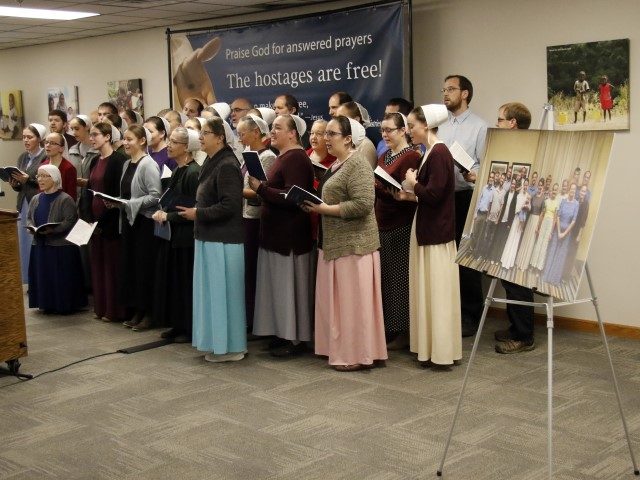Christian Aid Ministries on Tuesday revealed the harrowing details of how 12 of its missionaries managed to escape last week from the Haitian gang that kidnapped them in October.
A total of 17 missionaries – 16 Americans and one Canadian – were abducted by a Haitian gang called 400 Mawozo in October and held for $1 million ransom each. Gang leader Wilson Joseph issued a video statement vowing to “put a bullet in the heads of these Americans” if his demands were not met.
The missionaries were in Haiti to help rebuild homes destroyed in an August earthquake. They were kidnapped after visiting an orphanage.
Five children, aged from eight months to 15 years, were also taken by the gang. Two of the hostages were released in November, followed by three more in early December.
Initial police reports said the remaining 12 were “released” last Thursday, but at a press conference in its home state of Ohio on Tuesday, Christian Aid Ministries (CAM) said they actually staged a daring escape in the dead of night after two months in captivity, bringing the children with them.
“God was nudging them to attempt an escape,” said CAM spokesman Weston Showalter.
“When they sensed the timing was right, they found a way to open the door that was closed and blocked, filed silently to the path they [had] chosen to follow and left the place that they were held,” Showalter continued.
The missionaries were able to elude the gang members guarding them and made their way to a nearby mountain, navigating by the stars. They were able to bring some water and carried the two youngest children, the now 10-month-old infant and a three-year-old toddler, wrapping them in blankets to protect them as they fled through rough terrain.
“Two hours were through fierce brambles. We were in gang territory the whole hike,” one of the escapees said, as quoted by Showalter.
The missionaries ran until sunrise, when they found someone with a phone who helped them call for rescue. They were brought back to the United States by the U.S. Coast Guard, landing in Florida.
Showalter said their captors did not treat the hostages well. They were given a minimal diet of “spaghetti, rice, and beans” and frequently went hungry, although they were given a meal of “Haitian stew” for Thanksgiving. They bathed in “severely contaminated water” and developed sores from mosquito bites. The hostages added that the gang took reasonably good care of the young children.
“The hostages spoke to the gang leader on several occasions, boldly reminding him of God and warning him of God’s eventual judgment if him and the gang members continue in their gangs,” Showalter said.
CAM director David Troyer also spoke at the press conference. He thanked “people who sought to help us” by providing “funds to pay a ransom and allow the negotiation process to continue,” but did not confirm whether any ransom was paid to the 400 Mawozo gang.
Various U.S. media outlets reported that as of Tuesday morning, neither the U.S. nor Haitian governments had confirmed the details of CAM’s account, and Haitian police have not explained why they said the hostages were “released” rather than escaping on their own initiative.
Showalter said the former hostages have forgiven their captors and will continue praying for them.
“In their mind, the true hostages are those who took them. Our prayer is that the hostage-takers be transformed. We choose to extend forgiveness to them. We would love for them to become brothers in Christ,” he said.
Troyer added that CAM will not suspend its operations in Haiti despite the security situation.
“We can not abandon them in their greatest time of need. We want Haitians to flourish economically and spiritually,” he said.

COMMENTS
Please let us know if you're having issues with commenting.